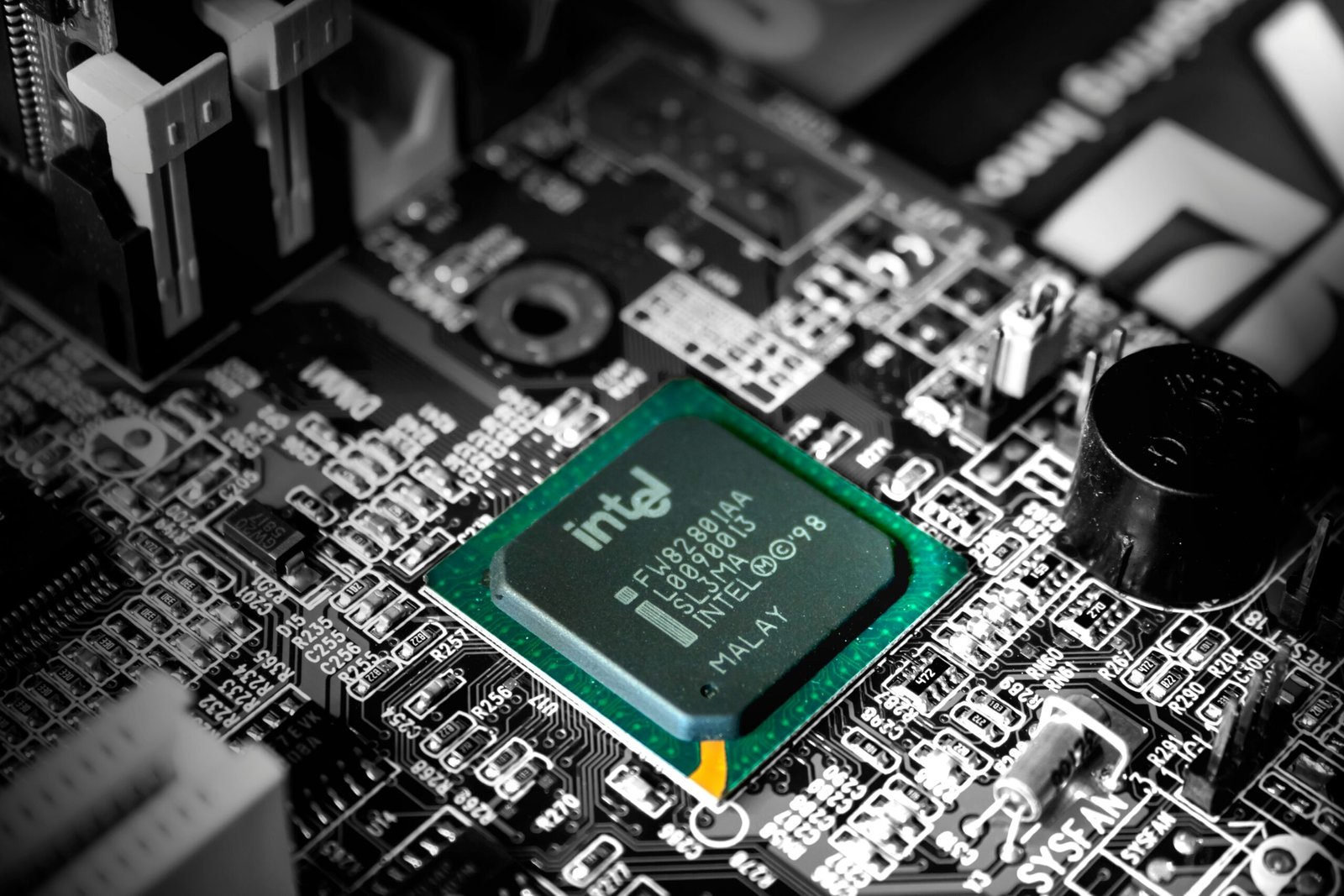Introduction to Robotics Advancements
The field of robotics has witnessed exceptional advancements over the past few decades, evolving from concepts primarily seen in science fiction literature and films to practical applications that greatly impact various sectors. Today, robotics encompasses a broad spectrum of technologies that range from industrial robots autonomously assembling products to sophisticated humanoid machines capable of interacting with humans in meaningful ways. This ongoing evolution highlights not only remarkable engineering innovations but also the profound implications these breakthroughs can have on industries such as healthcare, manufacturing, and everyday life.
In the realm of healthcare, robotic systems are transforming surgical procedures, enhancing precision, and improving patient outcomes. Surgical robots provide surgeons with enhanced dexterity and visualization, allowing for minimally invasive operations that significantly reduce recovery times. Beyond surgical applications, robots are also being deployed in patient care settings, assisting with mobility and mobility monitoring, demonstrating their potential to improve the quality of life for individuals requiring long-term care.
Manufacturing has similarly reaped the benefits of robotics advancements, with an increasing number of factories adopting automation solutions for tasks such as assembly, packaging, and quality control. These advances not only increase efficiency and productivity but also allow for the creation of safer working environments by taking over hazardous roles that pose risks to human workers. As automation spreads across various sectors, businesses are beginning to realize the potential of robotic systems to enhance operational capabilities and drive economic growth.
Furthermore, the integration of robotics into daily life is becoming more pronounced. Home automation systems, robotic vacuum cleaners, and assistive devices for the elderly exemplify how robots are gradually becoming part of the fabric of modern living, making everyday tasks more manageable. As we continue to explore the cutting-edge advancements in robotics, it is crucial to understand their broader significance and the ways they are reshaping society. This blog post aims to delve into the implications of these robotic innovations, highlighting the potential and challenges that lie ahead.
Key Breakthroughs in Robotics Technology
The field of robotics has witnessed remarkable advancements in recent years, particularly due to significant progress in artificial intelligence (AI), mobile robotics, and autonomous systems. These breakthroughs are reshaping various industries, enhancing efficiency, productivity, and the overall quality of life. One notable example is the development of advanced AI algorithms that empower robots to learn and adapt in real time. For instance, Boston Dynamics’ robotic systems, such as Spot, leverage AI to navigate complex environments, perform tasks remotely, and collaborate with human workers seamlessly. This integration of AI in robotics allows for improved decision-making and operational efficiency.
Another key area of advancement is in mobile robotics. Robotic platforms are becoming increasingly adept at traversing diverse terrains, which is essential in sectors such as agriculture, logistics, and healthcare. A prime illustration is the use of autonomous drones in precision agriculture. These drones are equipped with AI-driven sensors that monitor crop health and optimize pesticide use, effectively increasing agricultural productivity while minimizing environmental impact. According to a report by the USDA, farms utilizing drones have reported yield increases of up to 15%, emphasizing the significant benefits of robotics in farming.
Moreover, autonomous systems are revolutionizing transportation and delivery services. Companies like Waymo and Tesla are leading the charge in developing self-driving vehicle technology. These innovations not only promise to enhance road safety—eliminating approximately 94% of human-related accidents as reported by the National Highway Traffic Safety Administration—but they also aim to improve various logistical processes. The rise of robotic delivery platforms, such as those developed by Starship Technologies, signifies a shift in urban logistics, with studies indicating a potential reduction in delivery costs by as much as 30% due to increased operational efficiency.
As these robotic technologies continue to evolve, they are set to play a pivotal role in shaping our future, driving economic growth, and improving the quality of life across diverse sectors.
Challenges and Ethical Considerations in Robotics
The rapid advancements in robotics present a myriad of challenges and ethical considerations that must be addressed as this technology becomes more integrated into society. One of the foremost technical challenges lies in the development of artificial intelligence (AI) that is not only effective but also safe for human interaction. Ensuring that robots can understand and respond appropriately to complex, dynamic environments necessitates sophisticated algorithms and machine learning models. These technical limitations can hinder the potential applications of robotics in delicate environments such as healthcare and eldercare.
Ethical dilemmas are also at the forefront of robotics, particularly concerning job displacement and economic inequality. As robots become more adept at performing tasks traditionally carried out by humans, concerns about unemployment in various sectors arise. The manufacturing, retail, and transportation industries are significantly impacted, where automation threatens to replace jobs without the promise of new employment for displaced workers. A proactive approach to worker retraining and upskilling will be essential to mitigate these effects.
Privacy issues represent another critical concern in robotics, especially with the proliferation of surveillance technologies. Robots equipped with cameras and sensors can easily collect vast amounts of personal data, raising questions about who owns this data and how it should be used. The ethical programming of robots, where developers embed moral decision-making into AI, has become increasingly important. Establishing clear guidelines and ethical standards for robotic functions is essential to ensure that these systems operate within acceptable moral bounds.
Moreover, the evolving landscape of robotics necessitates robust policies and regulations to govern technological implementation. Policymakers must collaborate with experts in robotics and ethics to develop comprehensive frameworks that address these challenges, ensuring that society can reap the benefits of robotics while minimizing potential harm. The path forward will require a collective effort to balance innovation with the ethical implications of integrating robotics into daily life.
The Future of Robotics and What It Means for Us
As we look toward the future of robotics, it becomes clear that advancements in this field will significantly reshape various industries and everyday life. Predictions suggest that the next decade will see robots increasingly integrated into workflows, enhancing efficiency and accuracy. With artificial intelligence and machine learning at the forefront, we will witness robots not only performing repetitive tasks but also making complex decisions. This evolution paves the way for the development of smart robotic systems capable of learning from experiences and adapting to new environments.
In the healthcare sector, for instance, robotics holds tremendous potential. Surgical robots are already assisting in precision surgeries, and in the future, we may see the emergence of autonomous robots aimed at patient care and rehabilitation. These advancements could lead to improved patient outcomes and efficient resource management within medical facilities, ultimately benefiting healthcare providers and patients alike.
Similarly, the manufacturing industry is likely to undergo a transformation as robotics becomes an integral part of production lines. Collaborative robots, or cobots, are expected to work alongside human operators to streamline processes, reduce labor costs, and minimize hazards. This synergy not only boosts productivity but also enhances worker safety, as robots take on more dangerous tasks.
Furthermore, consumer robotics is on the rise, with smart home devices becoming common fixtures in households. This shift may redefine our daily lives, offering convenience and efficiency that were once inconceivable. However, as we embrace these technologies, it is crucial to consider their implications on employment and privacy. Automation may render certain skills obsolete, necessitating a shift in the workforce landscape. The integration of robotics prompts critical questions about ethics, responsibility, and the balance between innovation and societal impact.
As we stand on the brink of these advancements, we encourage you to engage in the conversation about the future of robotics. Share your thoughts and experiences related to robotics and how you envision its transformation in your own life. Your insights may contribute to a more thoughtful and inclusive dialogue about the implications of this exciting technological evolution.




